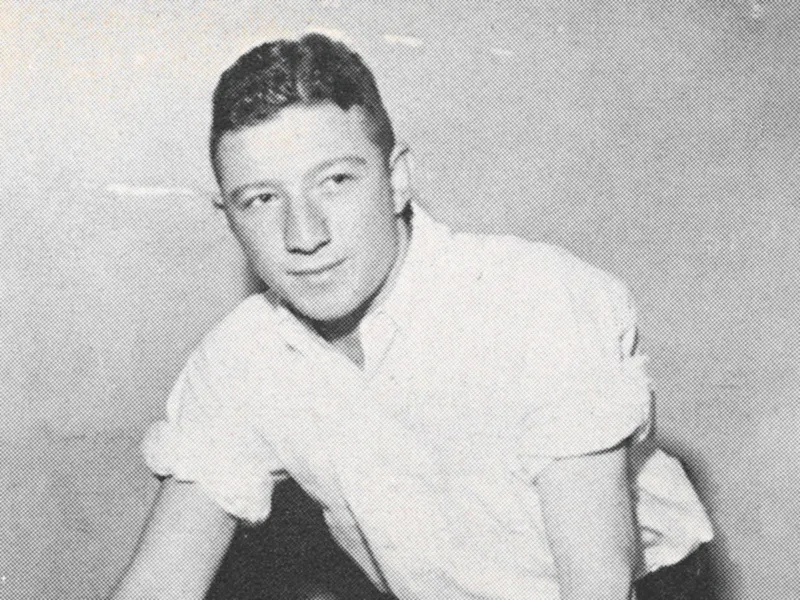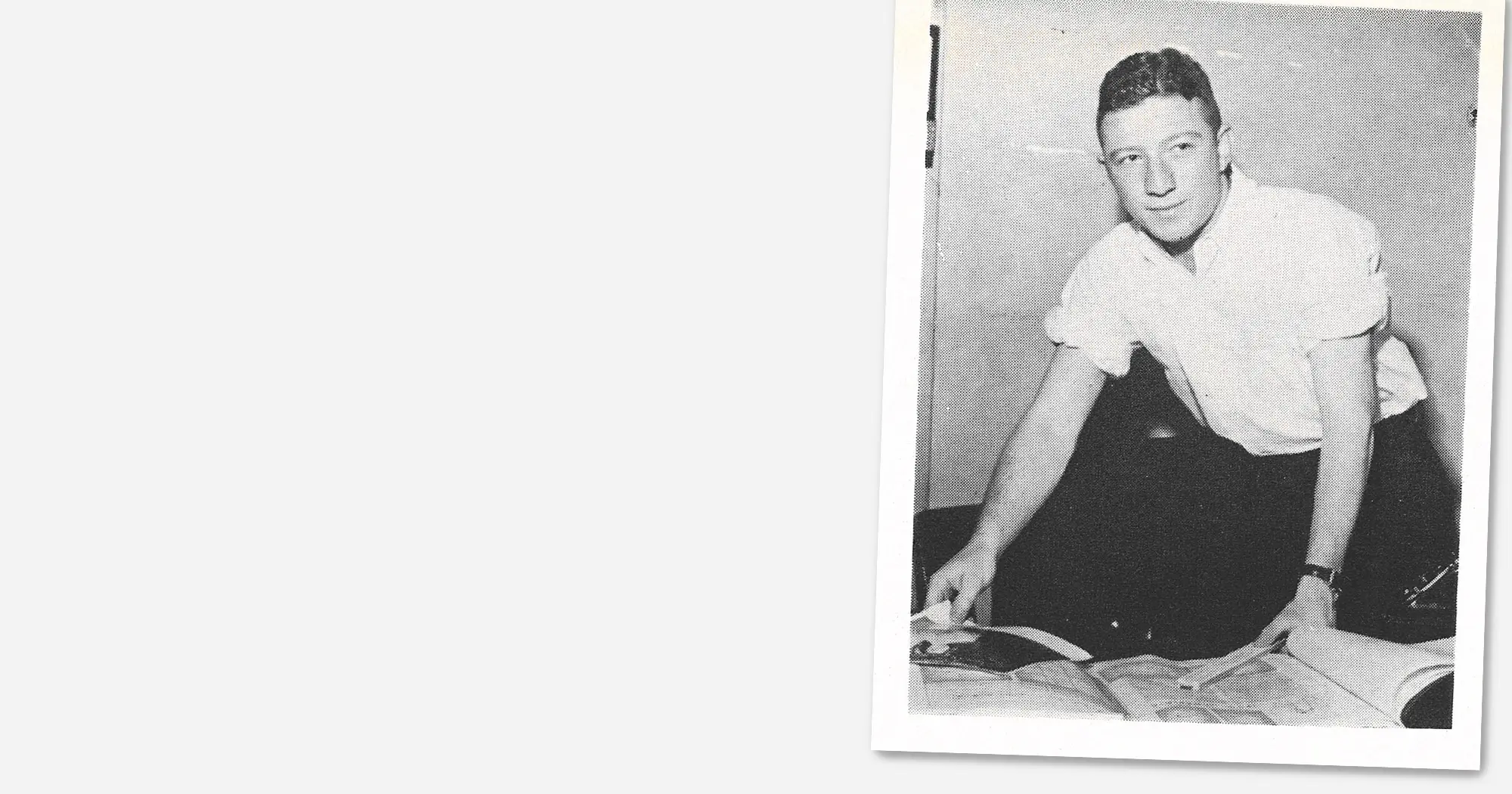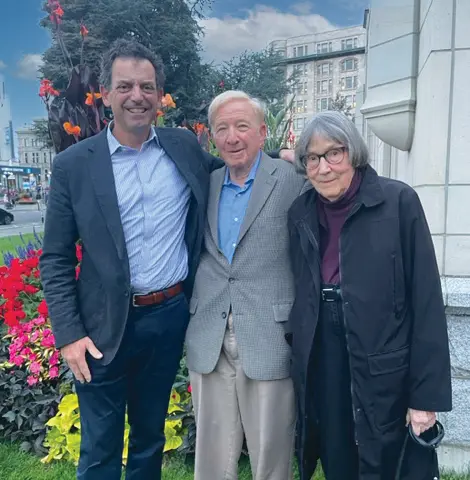

Originally published in the 2024 issue of the School of Liberal Arts Magazine
When COVID limited travel early in the tenure of Brian Edwards, the dean met Tulane alumnus Herbert S. Weil, Jr. (A&S ’54) by phone. Weil is a native New Orleanian whose career brought him first to the University of Connecticut and then the University of Manitoba, where he is professor emeritus of English. Weil’s scholarship focused primarily on Shakespeare, but his range is exceptionally broad, and he moves easily in conversation between Sophocles, Montaigne, Alice Munro, and Ingmar Bergman.
The dean and alum had in common something beyond Tulane: they are both humanities scholars. Their first phone conversations were animated by shared references to beloved works of literature and admired critics and teachers. Three years, many calls, and two trips to Victoria later, the two English professors’ partnership came to fruition when Weil endowed a professorship in the humanities. This transformative gift to his alma mater (which had evolved from the College of Arts & Sciences into today’s School of Liberal Arts) reflects his belief that students should be challenged to think critically — and for themselves — to push their interpretations of historic texts.
For Edwards, the establishment of the Herb Weil PhD Professorship in the Humanities bolstered one of the school’s top priorities: to expand a global approach to the liberal arts and reassert the importance of the humanities themselves. Tulane Development Officer Caleb Roberts accompanied Edwards to Victoria and noted the unique fluency between the pair: “Herb is so passionate about the humanities, and Brian was trying to figure out how to make the humanities bigger and broader. Marry those two things and you get this perfect match.”
In thinking about how alumni can impact Tulane long after their student years, Weil was a perfect fit for this issue. Through this endowment, Weil’s passion for the humanities will endure, ensuring that generations of Tulanians will benefit from a global humanities curriculum.
How significant was it for you that Brian is a student of literature?
I was so impressed with his command of language and literature, especially when exploring French and North African — not normally found in English departments, but both are tremendously relevant to global literature.
When we met, we discussed how the area we were exploring was often called comparative literature. In my early professional years, literary criticism of reader response almost always primarily used statistics of race, gender, age, etc., instead of how we are encouraged to find ways that enlarged or completed the work itself. These extended the brilliant study by art historian Ernst Gombrich of “the beholder’s share.” Brian and I agreed early on that the greatest writers have a much deeper and richer sense of character than one would find in sociology or psychology. I liked that as a foundation.
How did the two of you initially conceptualize this professorship?
Our friendship developed over long conversations during the pandemic, but no matter how helpful Zoom is, it doesn’t have the spontaneity or sequence of an in-person conversation. During Brian’s first visit to Victoria, he explained his ideas for a program that so much reflected what I’d believed in and wanted to do, adapted for today’s school under his purview. That was the real start.
Brian gave space for me to bounce ideas, and our Socratic dialogue was the first time I felt I was contributing not just to a department or individual storied academic, but to someone whose program planning made me want to do something more than our initial gift. And I really suggested it not be named after me! The only thing worse than pomposity is people pretending to be humble.
I really felt that Brian’s interest complemented and extended mine.
What is your hope for this gift?
Mostly that it brings in a new idea, one that would take off in a way I never could have predicted. I hope this professor is truly aware of literature, theatre, film, philosophy, history, and encourages their students to think independently. I hope they avoid being any kind of conventional literary disciple or unwavering judge. Finding disparate interpretations within a breadth of major works, getting a classroom involved with the interplay of character with plot, language, and ideas, and with each other, and being able to foster that kind of thinking and energetic, respectful discussion … that sounds pretty great to me.
How would you credit your experiences as a humanist and literature professor in helping develop your philanthropy?
Oh, well, we better take a step back, because, as you know, teachers are not typical donors! I learned via a colleague in the early nineties that these kinds of things (professorships) were being written as gifts, showing promise for both teaching and research.
What Brian proposed was almost a mirror image of my master’s at Stanford, which was a graduate program in the humanities. I’ve always tried to resist generalizing about national literatures or looking too closely at the comparisons, except as a point of departure. I never wanted to just regurgitate what a professor said — I wanted to know the subject matter well enough to create an argument or discussion around it. Or, here, to find an application to something in which the course had not yet applied it.
So, we started there, and I was so impressed with Brian’s program and responses when I was not only out of the country — away from Tulane 40 years — and also a different generation to start with, but also unfamiliar with the administrative elements. I didn’t want to express any doubts. Because, especially in teaching, I emphasize that we aren’t looking for “correct” answers. We’re looking for options and evolution, and the fact that you were creating new ways to raise Tulane’s profile while also making sure the most important other subjects were there, it was almost a mirror image of my double PhD at Stanford. I loved the idea of getting to be a part of that at Tulane.
Do you think people benefit from having a humanistic education to draw from?
One of the brightest, smartest friends I had at Tulane had been so worried about getting into med school that he hadn’t kept up with reading for pleasure. So, whenever I saw him later — as my ophthalmologist — he wouldn’t charge me, but I’d give him collections of poetry and short stories. I think it is critical that we don’t necessarily focus on humanities specialists, which are important in their own right, but also look at why humanities are so important for leaders in other fields.
My older grandchild is 23 and starting a PhD in quantum physics. I spoke with him about this, and he responded roughly when we talked, “People must understand that so much of the scientific method is excellent for studying the universe, but it’s almost never the kind of fact that non-specialists believe. There’s nothing in the study of science that gives the person a sense of spirit and energy that the study of humanities does, in exploring the perspectives of characters.”


